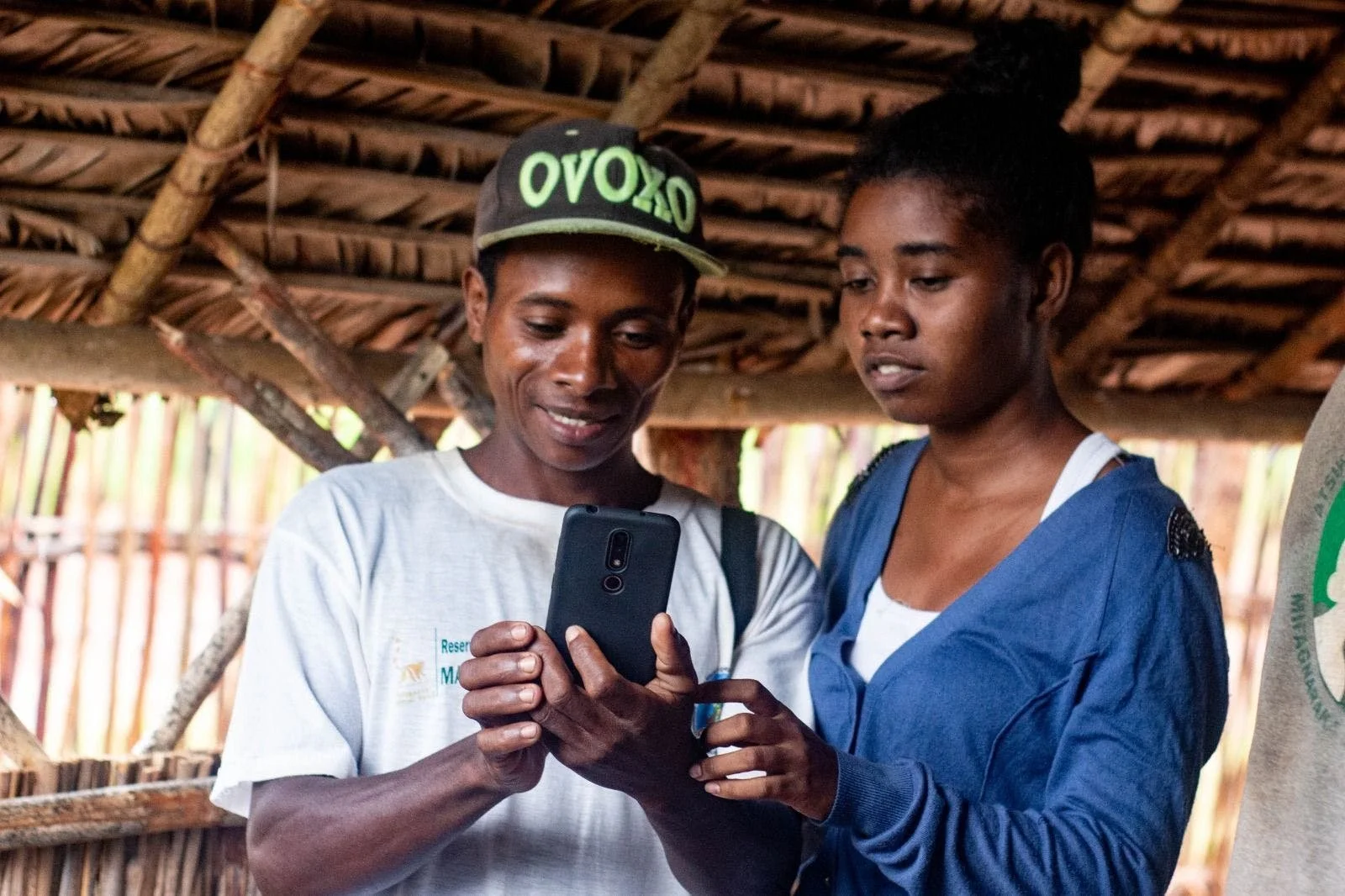Forest Guardians Make Big Strides in Ikongo, Madagascar
To maintain the health of forests, and in response to conversations with rainforest community members, Health In Harmony first launched the Forest Guardians Program in Indonesian Borneo. Local community members were trained and employed to patrol the local forests, monitoring ecosystem health and collecting seedlings for replanting trees in the process.
Due to the success of the program in Indonesia, in 2021, the Forest Guardian Program expanded to Manombo in Madagascar, as a community-designed solution to protect the country’s ecologically unique forests, home not just to endangered biodiversity but to the many communities forest guardians also call home.
Since January 2025, the Forest Guardian Program has been operating in the Ikongo District – an exciting next step in an initiative that shifts power, authority, and finance into the hands of rainforest guardians, recognizing their leadership in the struggle to protect biodiversity and fight climate change.
Selected through a thorough listening process and by their own communities, in total 30 forest rangers now work in the 3 communes where FAMI, Health In Harmony’s affiliate in Madagascar, operates in the Ikongo district: 10 in Maromiandra commune, 10 in Ambinanitromby commune, and 10 in Tolongoina commune.
In just one week in March, twenty community members underwent training to become Forest Guardians as part of the Ikongo Fagnimbogna project, launched with Médecins Sans Frontières/Doctors Without Borders (MSF) and Malagasy NGO Ny Tanintsika (NT). Read on to learn more about the program.
What do Forest Guardians do?
The work of Forest Guardians is to monitor and assess pressures and risks to the forests they patrol, sending the results to the forest ranger coordinator for assessment.
They work in pairs when conducting forest inspections, using mobile phones with the Commcare application to track forest risks, including illegal logging or other forms of degradation.
Forest Guardians also raise awareness among the local communities to protect the forest and not cut down trees, as well as assisting in tree planting with the community. They participate in monthly meetings and training provided by the ranger coordinator to continuously build skills.
The goal is to protect the remaining forests, a task Forest Guardians are passionate about because they have grown up alongside the forest, deeply aware of the underlying issues and the causes of deforestation.
The benefits of the Forest Guardian Program
On one level, the program improves livelihoods; Forest Guardians are paid a wage, meaning the program is providing jobs for people living around the forest. The ripple effect on other livelihoods is also significant, with community members engaging further with the importance of the forest’s existence, turning to more sustainable livelihoods, and partaking in reforestation. As for the impact on existing forests, the presence of Forest Guardians acts as a deterrent to extractivists, while the data they collect allows for long term planning of forest protection.
Going forward, it is hoped that the pressure on the Fandriana Vondrozo Midongy (COFAV) forest corridor – an area of approximately 450,000 hectares – will decrease significantly due to the work of Forest Guardians. Plans for 2025 include preserving 80% of forest cover in the Ikongo district and bringing the total of Forest Guardians recruited in the area up to 45.


